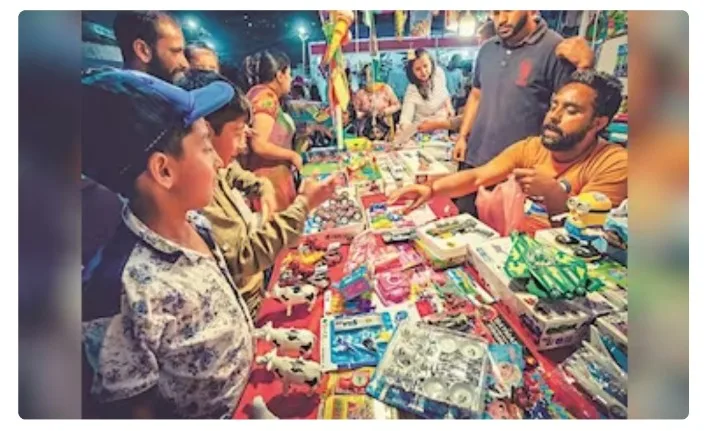New Delhi | In a significant development, the Indian toy industry reported remarkable growth in FY2022-23 compared to FY2014-15, with a notable decline in imports by 52% and a substantial increase in exports by 239%, as per the Ministry of Commerce and Industry. The findings were part of a case study titled “Success Story of Made in India Toys,” conducted by the Indian Institute of Management (IIM) Lucknow at the request of the Department for Promotion of Industry and Internal Trade (DPIIT).
The report highlighted the government’s efforts in creating a more conducive manufacturing ecosystem for the Indian toy industry, leading to positive outcomes. Over six years, from 2014 to 2020, these efforts resulted in a doubling of manufacturing units, reduced dependence on imported inputs from 33% to 12%, a 10% Compound Annual Growth Rate (CAGR) in gross sales value, and an overall increase in labor productivity.
**India Emerging as Top Toy Exporting Nation**
The analysis also pointed out that India is emerging as a top toy exporting nation, integrating into the global toy value chain. The country enjoys zero-duty market access for domestically manufactured toys in countries like UAE and Australia.
To position India as a viable alternative to current toy hubs like China and Vietnam, the report emphasized the need for consistent, collaborative efforts between the toy industry and the government. It suggested advancements in technology, embracing e-commerce, encouraging partnerships and exports, investing in brand-building, engaging with educators and parents, valuing cultural diversity, and collaborating with regional artisans.
**Government Initiatives and Interventions**
To address these challenges and foster growth in the Indian toy industry, the government has implemented several interventions and initiatives:
a) Formulation of a comprehensive National Action Plan for Toys (NAPT) with 21 specific action points, implemented by 14 central ministries/departments, with DPIIT as the coordinating body.
b) Increase in Basic Customs Duty (BCD) on toys (HS code 9503) from 20% to 60% in February 2020, and subsequently to 70% in March 2023.
c) Directorate General of Foreign Trade (DGFT) mandated sample testing of each import consignment to curb the import of sub-standard toys.
d) Issuance of a Quality Control Order (QCO) for toys in 2020, effective from January 1, 2021.
e) Special provisions by the Bureau of Indian Standards (BIS) to grant licenses to micro-sale units manufacturing toys without a testing facility for one year, further extended by three years.
f) BIS granting more than 1200 licenses to domestic manufacturers and over 30 licenses to foreign manufacturers for the manufacture of toys with BIS standard Marks.
g) Adoption of a cluster-based approach to support the domestic toy industry, with the Ministry of Micro, Small and Medium Enterprises (MSME) supporting 19 toy clusters under the Scheme of Funds for the Regeneration of Traditional Industries (SFURTI), and the Ministry of Textiles providing designing and tooling support to 13 toy clusters.
h) Promotional initiatives to encourage indigenous toys and innovation, including The Indian Toy Fair 2021, Toycathon, etc.
*End of Article*




